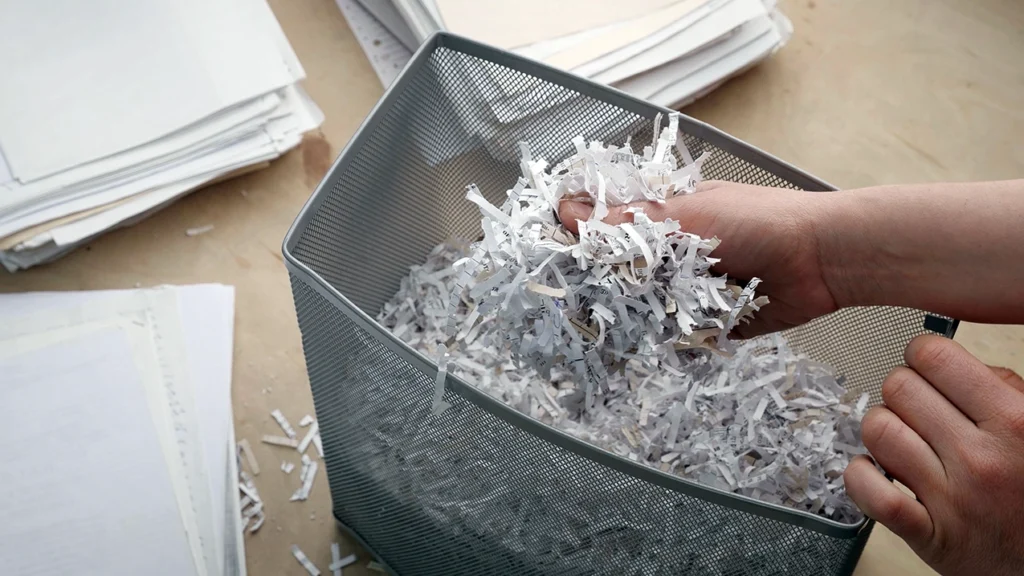
With tax season looming, many people can picture a memory from the not-too-distant past: box after heavy box of documents and receipts collecting dust for eternity. Today we can scan and shred records to our hearts’ desire, but questions remain.
Should all records now be digitized? Should some be shredded? Are some better intact? And when should the shredding commence? If confusion is setting in, fear not. Here are some simple tips that could make this year’s post-tax routine a little lighter.
Shred Immediately
• Sales receipts (unless related to warranties, taxes or insurance)
• Canceled Checks (unless tax-related)
• ATM receipts
• Paid credit card and utility bills
• Credit offers
• Expired Warranties
Shred After One Year
• Pay Stubs
• Bank Statements
• Paid, undisputed medical bills
Shred After Seven Years
• Tax-related receipts
• Tax-related canceled checks
• W-2s
•Tax deduction records
Keep While Useful
• Vehicle titles (for as long as you keep the car)
• Home deeds (for as long as you live there)
• Disputed medical bills (until resolved)
• Home Improvement Receipts (until you’ve sold and paid any capital gains taxes)
Keep for Life
• Birth certificates or adoption papers
• Social security cards
• Citizenship papers
• Passports
• Marriage or divorce decrees
• Family death certificates
• Tax Returns (even if these are no longer on paper, it’s still advised to hold on to the digital files)
How to Virtually Store Documents
Digitizing wisely requires more than just scanning and organizing, especially when it comes to tax-related data. Secure storage solutions, like Everplans and Vault, can ensure long-term privacy and offer confidence that your files are protected. There are also highly rated mobile apps, such as Adobe Scan, ABBYY FineReader PDF, Genius Scan and more. Find what suits you and let the privacy party begin.




